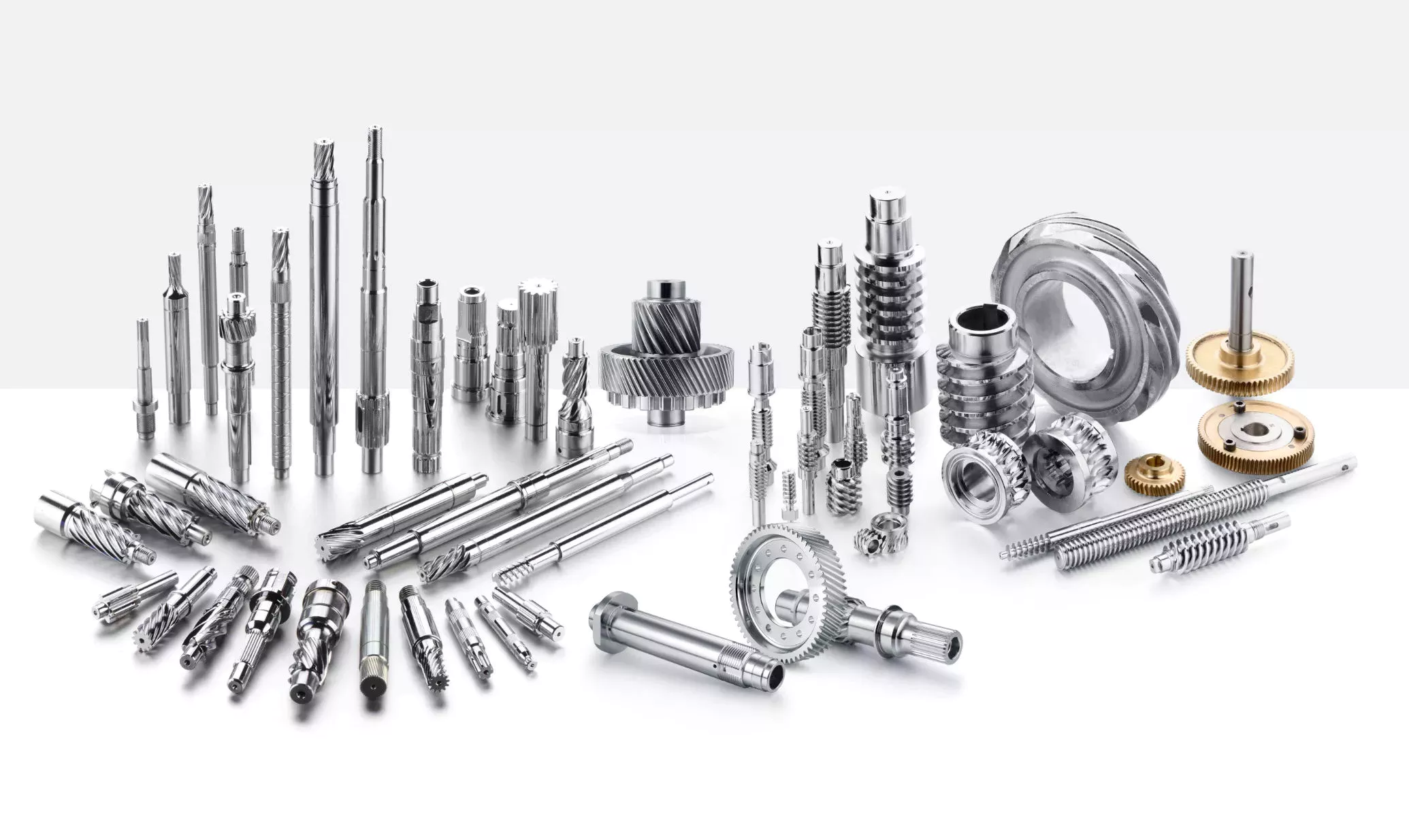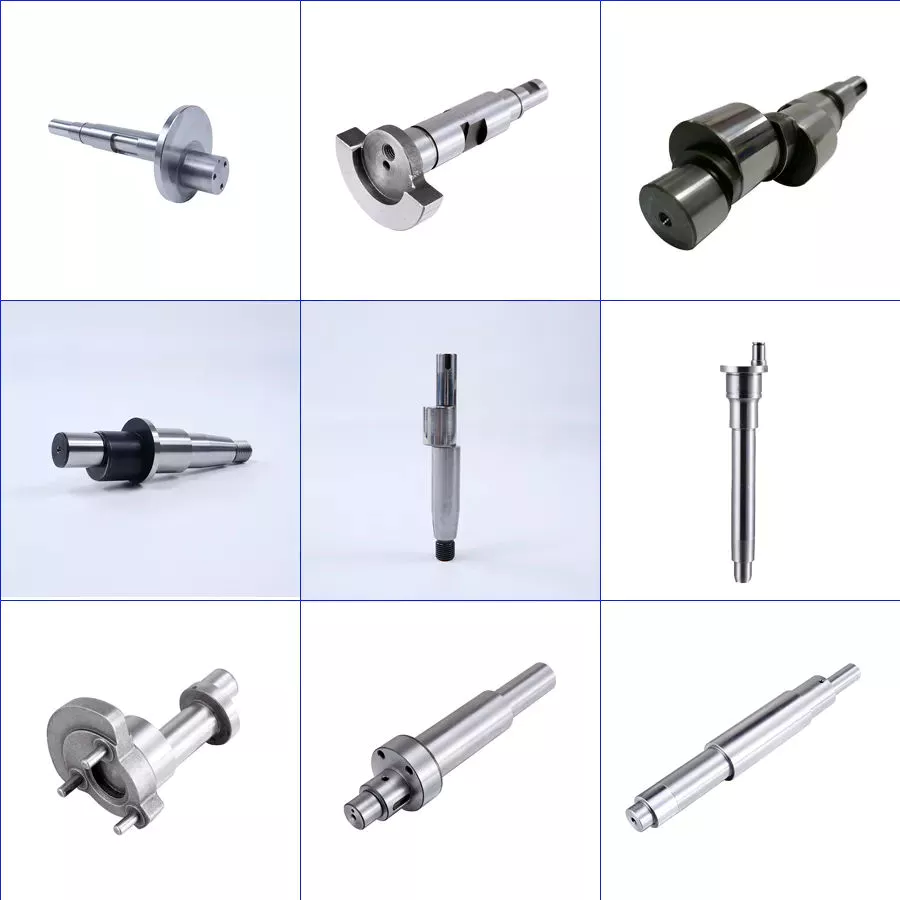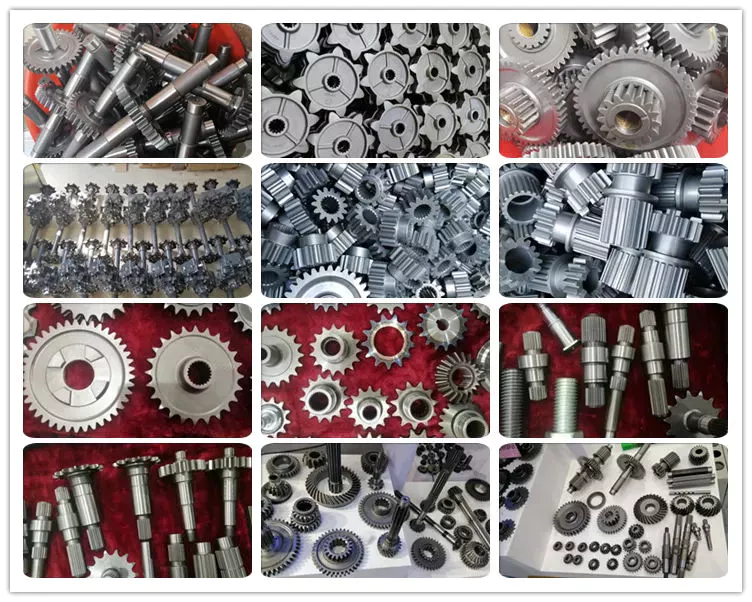Product Description
Products Name:
Aftermarket Diesel Engine Parts K19 Crankshaft for CZPT Application
Products Description:
| Item | Spec. |
| Engine Maker | Cummins |
| Material | Casting |
| N.W. (kg) | 169 |
| Length (mm) | 1324.8 |
| Main journal (mm) | 139.7 |
| Rod Journal (mm) | 101.6 |
| Stroke (mm) | 79.37 |
Except K19, We can also provide other CZPT Crankshaft as following:
| Name | Model | Material |
| CUMMINS | 4BT | Casting |
| 4H | Casting | |
| 6BT | Casting | |
| 4HE1 | forged | |
| 6HK1 | forged | |
| 6D15T | forged | |
| 6D34T | forged | |
| 6CT/6D114 | Casting/forged | |
| B3.3(M16/18) | Casting | |
| 6L | Casting | |
| NT855/D85 | Casting | |
| NH220/D80 | Casting | |
| M11 | Casting | |
| K19 | Casting | |
| A2300 | Casting | |
| ISF2.8L | Casting | |
| ISF3.8L | Casting |
If you can't find out what you wanted, our engineering team are willing to develop specific model per your drawing or sample.
Our Crankshaft can covered most famous engine brands such as:
CATERPILLAR :
S4K S6K 320D 3306 3304 C13 C9 3066
MITSUBISHI :
S4Q 4D30/4D31 4D32 4D33/4D34 4D34T 4D35 4D55 4D56/T 4D56T-2 4D56U 4DR5 4G15 4G54 4G63 4G64 4M40 S4S S6S S6KT 4D130 S4E S4F 6D14/15 6D16 6D16T 6D17 6D31 6D34 6D22 6D24 8DC91 6D40 6G72 6DB1 4G93 4G94 4M40 6D16
ISUZU :
4HF1/4HG1T 4HK1/4HE1T 4BA1 4BC2(DB33) 4BG1 4FC1 4JA1 4JB1 4DA1 4JB1T 4BE1 4JG1 4JG2 C223 C240 C190 600P 4BB1A 4ZE1 4ZD1 4ZA1 4ZB1 4BD1 4JJ1 G161 6BB1(NEW) 6BB1(OLB) 6BG1 6HE1 6HK1 6SD1 6WA1 6WG1 6HH1 6QA1 6BD1T/DB58/6BF1 6BD1 6SA1 DH100 10PC1 10PB1 10PE1 10PD1 12PC1 12PD1 6RB1
KOMATSU :
4D94E/4TNE94 4D95E/4D95S 4D95L 4D102 4D130 3D95 6D95L 6D102 S6D105 6D110 6D108 6D125 6D155
HINO :
W04D/EM505 W06D W06E J05E J08C/J08E H07C/H07CT H07D EK100 EK100-II EM100 EH700 NE6 P11C P11C new EF750 EF750-2
CUMMINS :
4BT 4H 6BT 6CT/6D114 6L NT855 NH220 M11 K19 A2300 ISF2.8L ISF3.8L
DEUTZ :
F6L912 F6L913 2F1011 F4L912 F4L913 BF4L913 F2L912 F3L912 F3L1011 226B
PERKINS :
4.236/4.248 4.203/D4.203 3.152/D3.152
NISSAN :
A12 ED33 FD6 KA20 KR30 ND6 SD23 TD27 YD25 TD42 PE6(T) PD6 FE6T H20-2 k25/K24 KA24 RD8 K21 YD25T RF8 RE8 RF10
Hyundai :
D4EA D4CB D4BB D4BH D4DA D4DB D4AE G4KC/G4JS D4BA D4AF D6BR D6BJ D6BH D6AV D6AZ D6AB D8AV D8AY D8AB D4AE G4KC G4JS
MERCEDES-BENZ :
OM442 OM355A(6601) OM355/6(6801) OM360 OM314 OM352 OM366
YANMAR :
4TNV94/98 4TNE94/98 3TNV84 4TNV84/88 4TNE84/88 4D106 4D122
MAZADA :
SL VA NA R2 WL 2.0 3.0
STEYR :
WD615 WD618 WD408.40
TOYOTA :
13B 14B 1DZ 1RZ/2RZ 2LT 2L 2Z 2TR B/1B 1C/2C 1Z 3B 3L 3L(A) 3RZ 21R/22R 3Y/4Y 3L/5L 12R 2E 2J 1AZ 2AZ 2KD 4K 4P 5M 5R 3B 1Y 2Y 3SZ 4K/5K 4Y 3Y 1NZ 1KZ 11Z 1HZ/1HD-T 1FZ-1 1FZ 14Z 11Z/13Z
MAN :
D2156 D2366/EC12/DE12 DO846/D1146/DE08 DB58 D2876 D2566 D2066 D2866
Volvo :
TD100A/101 TD121
Iveco :
3.0L 2.3L 2.8L
Kubota :
V3300 V2403 V2203 V3800
Others :
GM6.5-V8 GM LV-21 GM T16 JCD3CX FIAT480 Peugeot
504 505 KAMAZ DEAWOO DC23
LAND ROVER DISCOVERY LAND ROVET
Why It is Ruich Value:
Ruich Value (HangZhou) Tech. Co., Ltd is a professional auto parts integrated company which located in China old industry base HangZhou.
Our company are dedicated in engine components production and distribution for 2 decades years, Following are our advantage:
1) Over 30 years' experiences in engine part manufacturing and after-sales services;
2) 20 plus seasoned internal technical support engineers;
3) More than 10 years' experiences in exporting Crankshafts/Camshaft/Turbo etc...And business covers in North America, Latin America, Asia, Africa and Europe etc....;
4) Three types of certifications: ISO 9001, Chinese Industry and Commerce Bureau certified reliable supplier; And China's AAA-Level credit enterprise;
5) Partners with many leading renowned companies, such as: CZPT (Fortune Global 500 Corporation), and many engine companies;
6) Dedicated to offering various crankshaft, camshaft, turbo and we are keeping enriching our product lines.
7) Provides custom products and private labeling services per clients' demands.
8) Suitable for famous brands, such as: Toyota, Mitsubishi, Nissan, Isuzu, Volkswagen, Mazda, Hino, Komatsu, Yanmar, Cummins, Caterpillar, Deutz, Hyundai etc… More than 150 kinds of crankshaft, camshaft, turbo etc… And covers from small cars to heavy steam and construction machinery's engine.
Products Package:
Delivery:
Contact:
Analytical Approaches to Estimating Contact Pressures in Spline Couplings
A spline coupling is a type of mechanical connection between 2 rotating shafts. It consists of 2 parts - a coupler and a coupling. Both parts have teeth which engage and transfer loads. However, spline couplings are typically over-dimensioned, which makes them susceptible to fatigue and static behavior. Wear phenomena can also cause the coupling to fail. For this reason, proper spline coupling design is essential for achieving optimum performance.
Modeling a spline coupling
Spline couplings are becoming increasingly popular in the aerospace industry, but they operate in a slightly misaligned state, causing both vibrations and damage to the contact surfaces. To solve this problem, this article offers analytical approaches for estimating the contact pressures in a spline coupling. Specifically, this article compares analytical approaches with pure numerical approaches to demonstrate the benefits of an analytical approach.
To model a spline coupling, first you create the knowledge base for the spline coupling. The knowledge base includes a large number of possible specification values, which are related to each other. If you modify 1 specification, it may lead to a warning for violating another. To make the design valid, you must create a spline coupling model that meets the specified specification values.
After you have modeled the geometry, you must enter the contact pressures of the 2 spline couplings. Then, you need to determine the position of the pitch circle of the spline. In Figure 2, the centre of the male coupling is superposed to that of the female spline. Then, you need to make sure that the alignment meshing distance of the 2 splines is the same.
Once you have the data you need to create a spline coupling model, you can begin by entering the specifications for the interface design. Once you have this data, you need to choose whether to optimize the internal spline or the external spline. You'll also need to specify the tooth friction coefficient, which is used to determine the stresses in the spline coupling model 20. You should also enter the pilot clearance, which is the clearance between the tip 186 of a tooth 32 on 1 spline and the feature on the mating spline.
After you have entered the desired specifications for the external spline, you can enter the parameters for the internal spline. For example, you can enter the outer diameter limit 154 of the major snap 54 and the minor snap 56 of the internal spline. The values of these parameters are displayed in color-coded boxes on the Spline Inputs and Configuration GUI screen 80. Once the parameters are entered, you'll be presented with a geometric representation of the spline coupling model 20.
Creating a spline coupling model 20
The spline coupling model 20 is created by a product model software program 10. The software validates the spline coupling model against a knowledge base of configuration-dependent specification constraints and relationships. This report is then input to the ANSYS stress analyzer program. It lists the spline coupling model 20's geometric configurations and specification values for each feature. The spline coupling model 20 is automatically recreated every time the configuration or performance specifications of the spline coupling model 20 are modified.
The spline coupling model 20 can be configured using the product model software program 10. A user specifies the axial length of the spline stack, which may be zero, or a fixed length. The user also enters a radial mating face 148, if any, and selects a pilot clearance specification value of 14.5 degrees or 30 degrees.
A user can then use the mouse 110 to modify the spline coupling model 20. The spline coupling knowledge base contains a large number of possible specification values and the spline coupling design rule. If the user tries to change a spline coupling model, the model will show a warning about a violation of another specification. In some cases, the modification may invalidate the design.
In the spline coupling model 20, the user enters additional performance requirement specifications. The user chooses the locations where maximum torque is transferred for the internal and external splines 38 and 40. The maximum torque transfer location is determined by the attachment configuration of the hardware to the shafts. Once this is selected, the user can click "Next" to save the model. A preview of the spline coupling model 20 is displayed.
The model 20 is a representation of a spline coupling. The spline specifications are entered in the order and arrangement as specified on the spline coupling model 20 GUI screen. Once the spline coupling specifications are entered, the product model software program 10 will incorporate them into the spline coupling model 20. This is the last step in spline coupling model creation.
Analysing a spline coupling model 20
An analysis of a spline coupling model consists of inputting its configuration and performance specifications. These specifications may be generated from another computer program. The product model software program 10 then uses its internal knowledge base of configuration dependent specification relationships and constraints to create a valid three-dimensional parametric model 20. This model contains information describing the number and types of spline teeth 32, snaps 34, and shoulder 36.
When you are analysing a spline coupling, the software program 10 will include default values for various specifications. The spline coupling model 20 comprises an internal spline 38 and an external spline 40. Each of the splines includes its own set of parameters, such as its depth, width, length, and radii. The external spline 40 will also contain its own set of parameters, such as its orientation.
Upon selecting these parameters, the software program will perform various analyses on the spline coupling model 20. The software program 10 calculates the nominal and maximal tooth bearing stresses and fatigue life of a spline coupling. It will also determine the difference in torsional windup between an internal and an external spline. The output file from the analysis will be a report file containing model configuration and specification data. The output file may also be used by other computer programs for further analysis.
Once these parameters are set, the user enters the design criteria for the spline coupling model 20. In this step, the user specifies the locations of maximum torque transfer for both the external and internal spline 38. The maximum torque transfer location depends on the configuration of the hardware attached to the shafts. The user may enter up to 4 different performance requirement specifications for each spline.
The results of the analysis show that there are 2 phases of spline coupling. The first phase shows a large increase in stress and vibration. The second phase shows a decline in both stress and vibration levels. The third stage shows a constant meshing force between 300N and 320N. This behavior continues for a longer period of time, until the final stage engages with the surface.
Misalignment of a spline coupling
A study aimed to investigate the position of the resultant contact force in a spline coupling engaging teeth under a steady torque and rotating misalignment. The study used numerical methods based on Finite Element Method (FEM) models. It produced numerical results for nominal conditions and parallel offset misalignment. The study considered 2 levels of misalignment - 0.02 mm and 0.08 mm - with different loading levels.
The results showed that the misalignment between the splines and rotors causes a change in the meshing force of the spline-rotor coupling system. Its dynamics is governed by the meshing force of splines. The meshing force of a misaligned spline coupling is related to the rotor-spline coupling system parameters, the transmitting torque, and the dynamic vibration displacement.
Despite the lack of precise measurements, the misalignment of splines is a common problem. This problem is compounded by the fact that splines usually feature backlash. This backlash is the result of the misaligned spline. The authors analyzed several splines, varying pitch diameters, and length/diameter ratios.
A spline coupling is a two-dimensional mechanical system, which has positive backlash. The spline coupling is comprised of a hub and shaft, and has tip-to-root clearances that are larger than the backlash. A form-clearance is sufficient to prevent tip-to-root fillet contact. The torque on the splines is transmitted via friction.
When a spline coupling is misaligned, a torque-biased thrust force is generated. In such a situation, the force can exceed the torque, causing the component to lose its alignment. The two-way transmission of torque and thrust is modeled analytically in the present study. The analytical approach provides solutions that can be integrated into the design process. So, the next time you are faced with a misaligned spline coupling problem, make sure to use an analytical approach!
In this study, the spline coupling is analyzed under nominal conditions without a parallel offset misalignment. The stiffness values obtained are the percentage difference between the nominal pitch diameter and load application diameter. Moreover, the maximum percentage difference in the measured pitch diameter is 1.60% under a torque of 5000 N*m. The other parameter, the pitch angle, is taken into consideration in the calculation.

